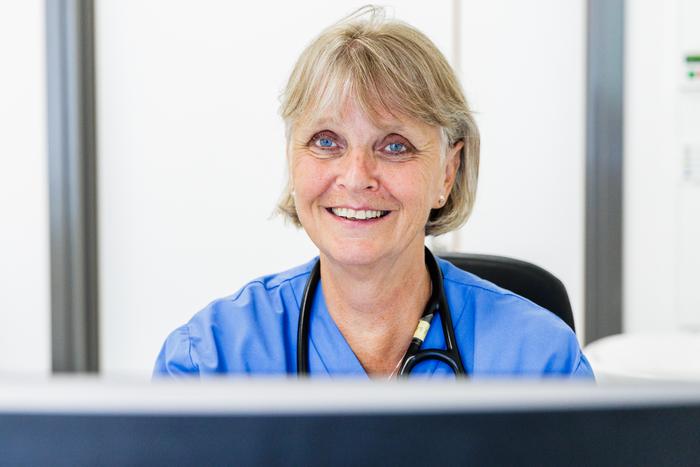Swedish researchers have surveyed all people under the age of 25 who have had cancer since 1958. The study, led by researchers at Linköping University and Region Östergötland, shows that cancer survivors are at greater risk for cardiovascular diseases, other cancers and other diagnoses later in life. In addition, the researchers saw that socioeconomic factors played a role in survival.

Credit: Thor Balkhed
Swedish researchers have surveyed all people under the age of 25 who have had cancer since 1958. The study, led by researchers at Linköping University and Region Östergötland, shows that cancer survivors are at greater risk for cardiovascular diseases, other cancers and other diagnoses later in life. In addition, the researchers saw that socioeconomic factors played a role in survival.
Since 1958, Sweden has registered all cancer patients in the National Cancer Register. Swedish researchers have now used this register to study all cancer survivors who had cancer as a child, adolescent or adult to examine outcomes in later life. The results have been published in the scientific journal The Lancet Regional Health – Europe.
“If you’ve had cancer as a child or adolescent, you have an increased risk of almost all diagnoses in the future. This study lays the foundation for understanding why this is so and what decision-makers need to take into account when it comes to cancer care,” says Laila Hübbert, researcher at Linköping University and consultant at the Cardiology Clinic at Vrinnevi Hospital in Norrköping.
The study’s data spans 63 years. From this data, approximately 65,000 cancer patients under the age of 25 were compared with a control group of 313,000 individuals (a ratio of 1:5), where age, sex and housing situation were matched with the patient group. From other registers, the researchers retrieved information on morbidity, mortality and demography.
The researchers found that the cancer survivors were about three times more likely to develop cancer later in life, 1.23 times more likely to have cardiovascular disease and had a 1.41 times higher risk of accidents, poisoning and suicide.
At present, the healthcare system usually follows up cancer survivors five years after the end of treatment. In other words, you are usually considered healthy if the cancer has not returned after five years, and no further follow-up is planned. But the current study, and also previous ones, show that this is probably not enough.
“Cancer survivors carry with them a fragility for the rest of their lives that puts them at higher risk of new diseases. It’s mainly the chemotherapy and radiation treatment that increases the risk of cardiovascular disease. This means that patients shouldn’t be released prematurely without planned and ongoing follow-up. It’s important to identify these risk factors and diseases early,” says Laila Hübbert.
The researchers have also seen that socioeconomic factors play a major role in the risk of disease and death after cancer in young years. Thanks to a cross-check of registers, the researchers were able to see that the risk increases for those with a lower level of education, a foreign background, or who remain unmarried. At the same time, this study shows that the risk of disease and death after cancer in children and adolescents is the same regardless of where you live in Sweden.
Martin Singull is a professor of mathematical statistics and has worked closely with the clinics in order to analyse and combine the large amounts of data that come from many different sources.
“We have used proven statistical models. But it’s the complexity of the data that makes it challenging. It comes from different sources, and we also want to be able to pick out the information we want. That’s why we’ve also collaborated with computer scientist Robin Keskisärkkä, who has built the database,” says Martin Singull.
The next step for the researchers is to break down the results and probe into specific questions and understand why things look the way they do. This will include looking more at socioeconomic factors, cardiovascular disease linked to cancer, so-called cardio-oncology, and other forms of cancer.
“There aren’t really many countries that can carry out such a comprehensive survey. In Sweden, we have such fine comprehensive and high-quality national registers so it’s unique to be able to do this,” says Laila Hübbert.
Journal
The Lancet Regional Health – Europe
Method of Research
Data/statistical analysis
Article Title
Morbidity and mortality among children, adolescents, and young adults with cancer over six decades: a Swedish population-based cohort study (the Rebuc study)
Article Publication Date
15-May-2024
COI Statement
Any conflicts of interest are declared at the end of the scientific article.



